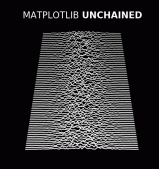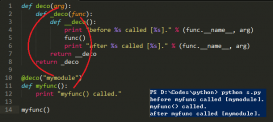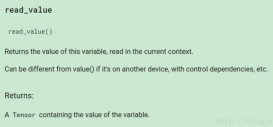本文实例讲述了Python实现的最近最少使用算法。分享给大家供大家参考。具体如下:
|
1
2
3
4
5
6
7
8
9
10
11
12
13
14
15
16
17
18
19
20
21
22
23
24
25
26
27
28
29
30
31
32
33
34
35
36
37
38
39
40
41
42
43
44
45
46
47
48
49
50
51
52
53
54
55
56
57
58
59
60
61
62
63
64
65
66
67
68
69
70
71
72
73
74
75
76
77
78
79
80
81
82
83
84
85
86
87
88
89
90
91
92
93
94
95
96
97
98
99
100
101
102
103
104
105
106
107
108
109
110
111
112
113
114
115
116
117
118
119
120
121
122
123
124
125
126
127
128
129
130
131
132
133
134
135
136
137
138
139
140
141
142
143
144
145
146
147
148
149
150
151
152
153
154
155
156
157
158
159
160
161
162
163
164
165
166
167
168
169
170
171
172
173
174
175
176
177
178
179
180
181
182
183
184
185
186
187
188
189
190
191
192
193
194
195
|
# lrucache.py -- a simple LRU (Least-Recently-Used) cache class # Copyright 2004 Evan Prodromou <evan@bad.dynu.ca> # Licensed under the Academic Free License 2.1 # Licensed for ftputil under the revised BSD license # with permission by the author, Evan Prodromou. Many # thanks, Evan! :-) # # The original file is available at # http://pypi.python.org/pypi/lrucache/0.2 . # arch-tag: LRU cache main module """a simple LRU (Least-Recently-Used) cache module This module provides very simple LRU (Least-Recently-Used) cache functionality. An *in-memory cache* is useful for storing the results of an 'expe\nsive' process (one that takes a lot of time or resources) for later re-use. Typical examples are accessing data from the filesystem, a database, or a network location. If you know you'll need to re-read the data again, it can help to keep it in a cache. You *can* use a Python dictionary as a cache for some purposes. However, if the results you're caching are large, or you have a lot of possible results, this can be impractical memory-wise. An *LRU cache*, on the other hand, only keeps _some_ of the results in memory, which keeps you from overusing resources. The cache is bounded by a maximum size; if you try to add more values to the cache, it will automatically discard the values that you haven't read or written to in the longest time. In other words, the least-recently-used items are discarded. [1]_ .. [1]: 'Discarded' here means 'removed from the cache'. """from __future__ import generators import time from heapq import heappush, heappop, heapify # the suffix after the hyphen denotes modifications by the # ftputil project with respect to the original version __version__ = "0.2-1"__all__ = ['CacheKeyError', 'LRUCache', 'DEFAULT_SIZE'] __docformat__ = 'reStructuredText en'DEFAULT_SIZE = 16"""Default size of a new LRUCache object, if no 'size' argument is given."""class CacheKeyError(KeyError): """Error raised when cache requests fail When a cache record is accessed which no longer exists (or never did), this error is raised. To avoid it, you may want to check for the existence of a cache record before reading or deleting it.""" passclass LRUCache(object): """Least-Recently-Used (LRU) cache. Instances of this class provide a least-recently-used (LRU) cache. They emulate a Python mapping type. You can use an LRU cache more or less like a Python dictionary, with the exception that objects you put into the cache may be discarded before you take them out. Some example usage:: cache = LRUCache(32) # new cache cache['foo'] = get_file_contents('foo') # or whatever if 'foo' in cache: # if it's still in cache... # use cached version contents = cache['foo'] else: # recalculate contents = get_file_contents('foo') # store in cache for next time cache['foo'] = contents print cache.size # Maximum size print len(cache) # 0 <= len(cache) <= cache.size cache.size = 10 # Auto-shrink on size assignment for i in range(50): # note: larger than cache size cache[i] = i if 0 not in cache: print 'Zero was discarded.' if 42 in cache: del cache[42] # Manual deletion for j in cache: # iterate (in LRU order) print j, cache[j] # iterator produces keys, not values """ class __Node(object): """Record of a cached value. Not for public consumption.""" def __init__(self, key, obj, timestamp, sort_key): object.__init__(self) self.key = key self.obj = obj self.atime = timestamp self.mtime = self.atime self._sort_key = sort_key def __cmp__(self, other): return cmp(self._sort_key, other._sort_key) def __repr__(self): return "<%s %s => %s (%s)>" % \ (self.__class__, self.key, self.obj, \ time.asctime(time.localtime(self.atime))) def __init__(self, size=DEFAULT_SIZE): # Check arguments if size <= 0: raise ValueError, size elif type(size) is not type(0): raise TypeError, size object.__init__(self) self.__heap = [] self.__dict = {} """Maximum size of the cache. If more than 'size' elements are added to the cache, the least-recently-used ones will be discarded.""" self.size = size self.__counter = 0 def _sort_key(self): """Return a new integer value upon every call. Cache nodes need a monotonically increasing time indicator. time.time() and time.clock() don't guarantee this in a platform-independent way. """ self.__counter += 1 return self.__counter def __len__(self): return len(self.__heap) def __contains__(self, key): return self.__dict.has_key(key) def __setitem__(self, key, obj): if self.__dict.has_key(key): node = self.__dict[key] # update node object in-place node.obj = obj node.atime = time.time() node.mtime = node.atime node._sort_key = self._sort_key() heapify(self.__heap) else: # size may have been reset, so we loop while len(self.__heap) >= self.size: lru = heappop(self.__heap) del self.__dict[lru.key] node = self.__Node(key, obj, time.time(), self._sort_key()) self.__dict[key] = node heappush(self.__heap, node) def __getitem__(self, key): if not self.__dict.has_key(key): raise CacheKeyError(key) else: node = self.__dict[key] # update node object in-place node.atime = time.time() node._sort_key = self._sort_key() heapify(self.__heap) return node.obj def __delitem__(self, key): if not self.__dict.has_key(key): raise CacheKeyError(key) else: node = self.__dict[key] del self.__dict[key] self.__heap.remove(node) heapify(self.__heap) return node.obj def __iter__(self): copy = self.__heap[:] while len(copy) > 0: node = heappop(copy) yield node.key raise StopIteration def __setattr__(self, name, value): object.__setattr__(self, name, value) # automagically shrink heap on resize if name == 'size': while len(self.__heap) > value: lru = heappop(self.__heap) del self.__dict[lru.key] def __repr__(self): return "<%s (%d elements)>" % (str(self.__class__), len(self.__heap)) def mtime(self, key): """Return the last modification time for the cache record with key. May be useful for cache instances where the stored values can get 'stale', such as caching file or network resource contents.""" if not self.__dict.has_key(key): raise CacheKeyError(key) else: node = self.__dict[key] return node.mtime if __name__ == "__main__": cache = LRUCache(25) print cache for i in range(50): cache[i] = str(i) print cache if 46 in cache: print "46 in cache" del cache[46] print cache cache.size = 10 print cache cache[46] = '46' print cache print len(cache) for c in cache: print c print cache print cache.mtime(46) for c in cache: print c |
希望本文所述对大家的Python程序设计有所帮助。












